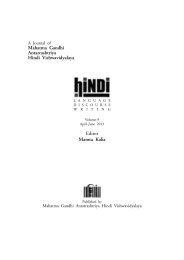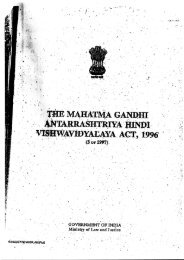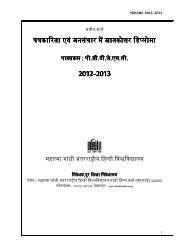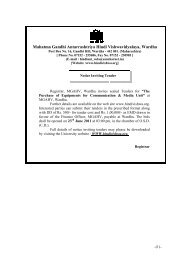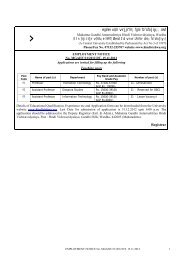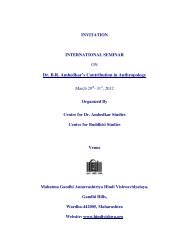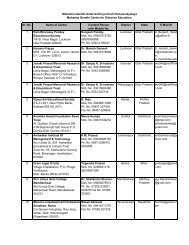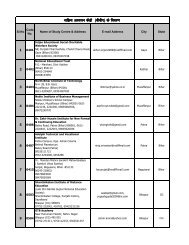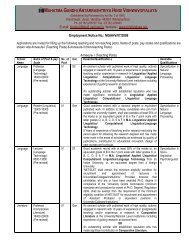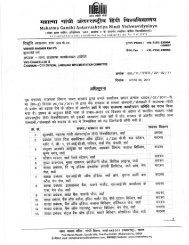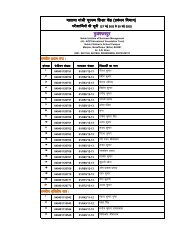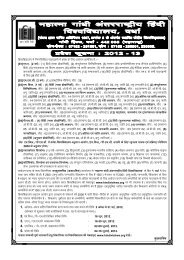Mamta Kalia
Mamta Kalia
Mamta Kalia
Create successful ePaper yourself
Turn your PDF publications into a flip-book with our unique Google optimized e-Paper software.
cannot reflect the ideological frameworks,<br />
the end of representation leads us to<br />
‘ whose history gets told? In whose name?<br />
For what purpose?’<br />
On the other hand, in 1980’s, the<br />
second strand of post-structuralist postmodernism,<br />
that of Foucault and Lacan,<br />
accepted the actuality of the textuality<br />
and sign, of representations that do not<br />
represent but emphasised on the power<br />
and the constitution of subject. To the<br />
positivists knowledge was neutral and<br />
objective while to the Marxists it was<br />
politically emancipatory, but for Foucault<br />
and Lacan, it is necessarily bound up<br />
with power, hence suspect. They rightly<br />
question the power inherent in knowledge,<br />
language and discourse. They desire to<br />
undo the institutionalised hierarchies and<br />
hegemony of a single discursive system<br />
through a focus on difference, pluriformty<br />
and multiplicity. This strand stands for<br />
the ‘other’- women, coloured people, non<br />
–heterosexuals and children. Foucauldian<br />
view had a democratising influence within<br />
cultural institutions and in the<br />
humanities, and brought post-modernism<br />
closer to feminism and multiculturalism.<br />
Foucault raised some fundamental<br />
questions: Is it possible to distinguish<br />
between the claims of truth and those<br />
of power? Is power outside the knowledge<br />
or is knowledge distinguishable from<br />
power? Does science, in the age of<br />
development, coming closer to the truth<br />
finally remain far off from the truth?<br />
Does knowledge become more capable<br />
as a technology of repression? Foucault<br />
70 :: April-June 2010<br />
provided five major premises: First, in<br />
the history of modernity there is<br />
unbreakable relationship between<br />
knowledge and power, humanism and<br />
terror, reform and hegemony; and logic<br />
always became helpful to totalise the<br />
forms of hegemony.<br />
Second, power does not have only<br />
one source (state), rather power has<br />
many thoughtful behaviours-rules related<br />
to sexuality, jail, etc a study of which<br />
is possible in many autonomous areas;<br />
there was no history as an enterprise<br />
of freedom, rather there were histories<br />
of power, production and subordination.<br />
Third, the real problem is not the<br />
exploitation of labour but ‘the technology<br />
of body’-i.e., ‘normal’ is entered into<br />
the human body through violent<br />
religious, moral, justicerelated,medicine-related<br />
and sexualityrelated<br />
measure.<br />
Fourth, power is scattered in<br />
numerous speeches and behaviours but<br />
there is no network of individual or<br />
institution(s) or interests in which the<br />
behaviour of power may be sought. Every<br />
speech of power constitutes its own point<br />
of tension and struggle and the resistance<br />
may be only multiple, local and<br />
temporary. Thus power is prior to history.<br />
Fifth, power produces man and puts<br />
him in his fixed place.<br />
Thus these premises are acceptable<br />
but unfortunately Foucault does not give<br />
due focus to question state power, colonial<br />
power and industrial capitalism’s power.



